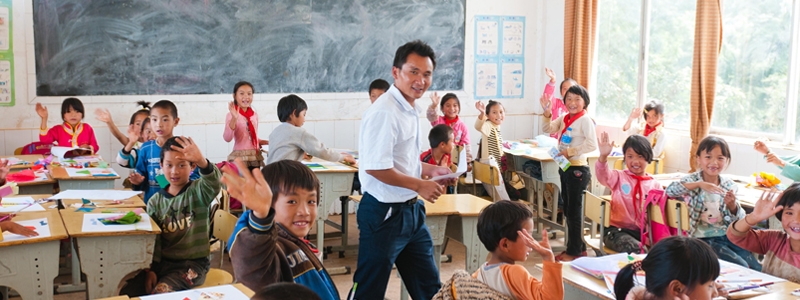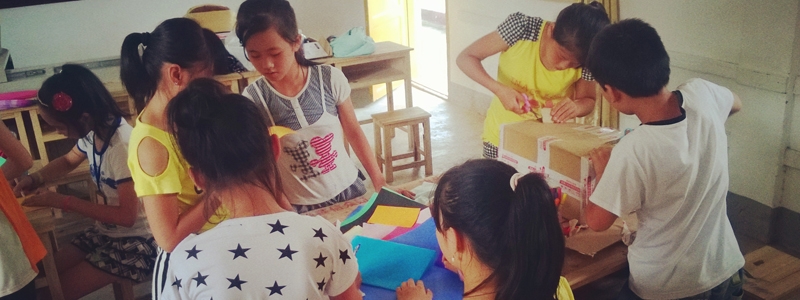Problem: The number of students per teacher in Chinese rural schools is very high. These teachers are usually inexperienced and overworked and have little time to monitor the individual development of each student. At home, children also frequently suffer from the absence of their parents, who generally work in cities. As a result, the children are raised by their grandparents, who feel that it is the school's responsibility to educate them. This situation gives rise to a vicious cycle that keeps students in a situation of poverty that is bereft of competitiveness, all due to the lack of good schooling. The 1kg Box project offers training for teachers in the form of boxes that contain material on subjects such as the arts, literature and handicrafts. The project was created by Andrew Yu in 2011 following a pilot project called 1 kg More. 1 kg More encouraged backpackers to add another 1 kg of supplies to their belongings in order to help rural communities.

Solutions: The 1kg Box project offers prepackaged courses to rural teachers in the form of boxes, such as, for example, the "art box", "reading box", "theater box", "handicraft box", "health box" and "electronics box". Each kit contains the items that are required to teach the subject. The handicrafts box, for example, contains string, pieces of paper of varying sizes, scissors and glue. It also has a user's guide that offers suggestions for lessons, including practical tips such as discussions or games. In addition, teachers can access activity plans with a cell phone app. They can also participate in a social network where it is possible for them to share lesson plans and pictures of the work their students submitted.
The organization encourages volunteers to develop ideas for the boxes. A couple of teenagers, for example, created a geometry lesson that can be given with the tools contained in the handicrafts box. Another volunteer prepared lessons about the solar system for the theater box. In order to send the courses to the teachers free of charge, the project depends on the support of foundations and companies, who purchase the boxes. These companies also hire the organization to deliver customized services and prepare unique designs.

Outcomes: The children, therefore, become more interested in the lessons. They also have the opportunity to develop their creativity and explore their talents. Students can create artwork not only by drawing but also by assembling collages and three dimensional art projects. Teachers can incorporate advanced educational methods into the lesson plans, such as teamwork, gamification and student-centered apprenticeship. Teachers can even connect with other teachers and learn from each other's experiences. Since the project's inception, more than five thousand courses were offered free of charge to students in rural China. In August 2013, 542 schools, 2,955 volunteers and 55,660 students benefitted from the project. The organization is working to create the "school box", which will integrate each of the different types of boxes that have already been created. In addition, the organization intends to begin selling these boxes to individual consumers and people within the cities, who can buy a box for themselves and donate another box to a rural school.







